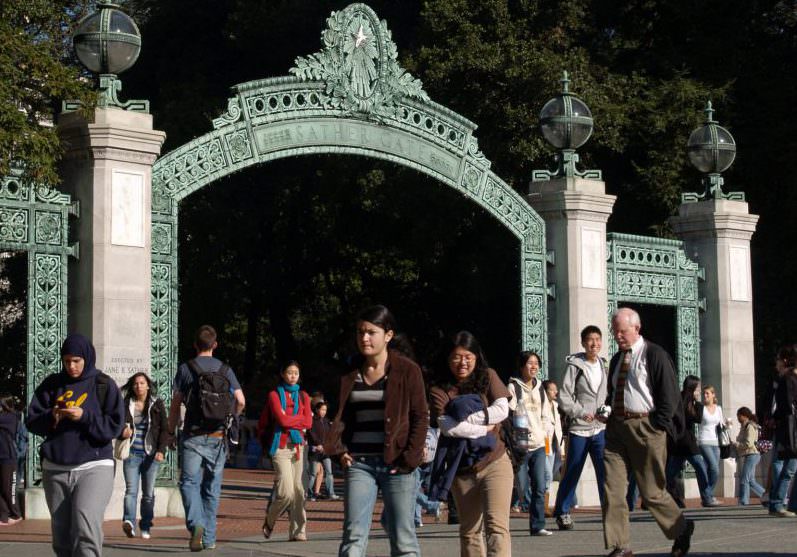Top Stories
Infantilizing Students Post-Election
These educators apparently either don’t know or don’t care about ridicule from working adults, many of whom are alumni of the very institutions in question.

How to explain the babying of students increasingly practiced by college administrators, student-life staff and faculty? Last fall, dozens of institutions publicly “reached out” to comfort students after the surprise election of Donald Trump. At Berkeley, for example, The American Cultures Center posted the following notice:
The election results have elicited anxiety, fear, and grieving for some of our community members. As we proceed with the rest of this week and semester, it is crucial to acknowledge the trauma that is felt on campus. For this reason, we want to make you aware of some post-election teaching resources and several healing spaces that have been made available.
The attention these letters, Tweets and web postings lavish on student emotions is remarkable, as is their distressingly slight engagement with civics and their outright disregard of political history. The fact that Trump ran an ugly campaign and has gotten off to a blunder-riddled start to his presidency is irrelevant to the troubling meanings to be gathered from these letters.
At the most extreme one finds authorities assuring students that safe rooms will be set up, provisioned with Play-Doh and coloring books. This is the sort of thing that has already brought public ridicule on the heads of student activists who set up safe rooms to shelter students from “uncomfortable” thoughts and “hurtful” campus speakers. Now some college authorities are themselves proposing the same sort of psychic bubble wrap.
These educators apparently either don’t know or don’t care about ridicule from working adults, many of whom are alumni of the very institutions in question. Even Barack Obama went on the record while still president, stating that college students need to toughen up and learn to process disagreeable thoughts and reckon with upsetting events. The Ivory Tower insularity on evidence in the letters is bad enough, but what’s worse is the patronizing conception of students and the role of educators that is implicit in them.
It is, of course, possible to see these posts as strategic. Administrators hoped to get out ahead of already primed student-activists on their campuses before they had a chance to stage demonstrations or cook up lists of “demands.” After all activists haven’t hesitated to call for — and have recently gotten — administrative and faculty firings when these authorities have not shown sufficient obedience to social justice orthodoxy or have failed to keep up with the latest identitarian linguistic refinements.
Letters and web pages justify themselves by positing a group of students so distressed that they are unable to cope. Much hyperbole is apparent. Students seem coached into extreme states: disappointment becomes “despair”; sadness becomes “grieving” or “heartbreak”; confusion translates into unmanageable anxiety.

In defense of the letters, students have posted that they or their fellows are now “living in fear.” Thus students’ perceived lack of coping skills necessitates soothing notes from on high, “relaxation stations” and “safe spaces,” cancellation of classes, postponement of work and deferral of exams lest academic performance might suffer. Solidarity, yes! A hit on the grade point average, never!
The opportunity for an institution to reiterate core values would seem a worthy thing, but the unprecedented nature of these outreach efforts tells a different story. The values acknowledged are often enough commendable at face value: mutual respect, toleration, self-control. Ordinarily, no one would argue against this type of exhortation towards the mature and the stoic, but here that effort is undermined by emotional wallowing, which seems to be the real purpose of the letters and statements. Moreover, context is all in this case. It is difficult not to see something deeper at work in such Civics Lite presentations.
A thought experiment: would a similar spate of emails have been sent out had Hillary Clinton won the election? After all, as a letter to Virginia Tech students opined, “All of your feelings are real.” All of them, note. But in actuality that sort of fatuous validation only applies to the particular outcome that occurred. It doesn’t require much reading between the lines to see that most of these letters were sent because the wrong side won the election.
In defense, Trump’s detractors might claim that the moral ugliness of his campaign justifies these letters. But it is possible to deplore Trump’s racist and sexist statements, indeed to question his fitness for the office, and simultaneously to acknowledge that many of his supporters would have seen a Clinton victory as a deeply troubling exoneration of her obvious moral failings. Or they would have seen yet another example of the unbreakable reign of the moneyed and connected Washington insider. So wouldn’t the distressed Trump supporters have needed emotional succor if Clinton had won? Just try to imagine those letters being written.
Rather than allowing students to work things out in their own way, many authorities chose to intrude. And why not? This generation seems to contain a significant number of students who expect school authorities to be intrusive, perpetually overseeing students’ social lives, selectively policing moral stances, hectoring and dictating rather than leading and teaching. Many students might feel “uncared for” if authorities failed to rush into a situation that they find distressing.
In the end, the letters are far too little concerned with civic education and amount to a crude form of virtue signaling. With good reason many have lamented the “highschoolization” of the university. Yet some of these letters seem to favor bypassing high school in a downward plunge for the academy. They embody an elementary-school conception of student agency and maturity. They exemplify the tendency of college authorities to cocoon their students rather than push them out of the nest. Add that to the list of shocks produced by the recent election.






